
Find Help
More Items From Ergsy search
-

How do NSAIDs work to reduce pain?
Relevance: 100%
-
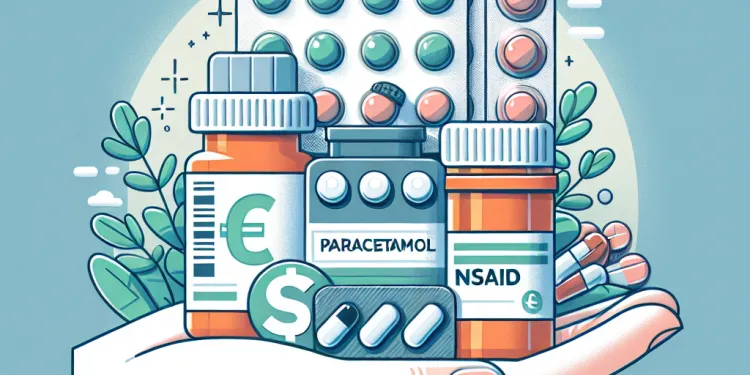
Why might someone choose Paracetamol over NSAIDs?
Relevance: 60%
-

Does Paracetamol reduce inflammation?
Relevance: 47%
-

Can I use Ibuprofen for menstrual pain?
Relevance: 42%
-

How to deal with period pain | NHS
Relevance: 42%
-

Can Ibuprofen be used to reduce inflammation?
Relevance: 39%
-

How to deal with period pain | NHS
Relevance: 38%
-

Shoulder pain | NHS
Relevance: 38%
-

How to deal with period pain | NHS
Relevance: 38%
-

What is the difference between Aspirin, Paracetamol, and Ibuprofen?
Relevance: 35%
-

Is impetigo painful?
Relevance: 35%
-

Is a facelift painful?
Relevance: 34%
-

Is a mammogram painful?
Relevance: 34%
-

Foot Pain
Relevance: 34%
-

Greater trochanteric pain syndrome
Relevance: 34%
-
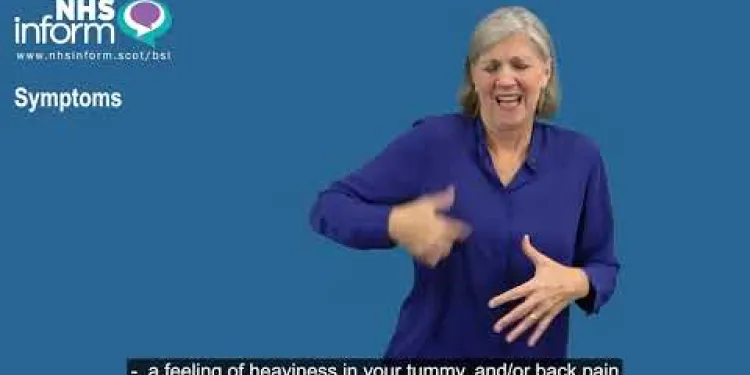
Period pain (dysmenorrhoea) - BSL
Relevance: 34%
-

How does aspirin work to reduce cancer risk?
Relevance: 33%
-
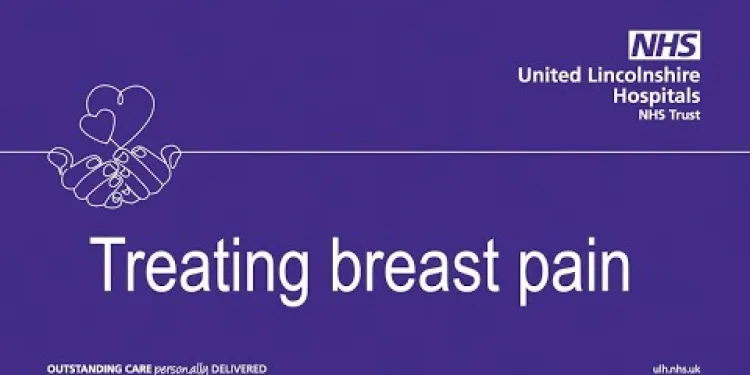
Treating breast pain | United Lincolnshire Hospitals NHS Trust
Relevance: 32%
-

Shoulder pain | NHS
Relevance: 32%
-

Heel pain | NHS
Relevance: 30%
-

Mechanical Lower Back Pain
Relevance: 30%
-

Shoulder subacromial shoulder pain
Relevance: 30%
-

Advice on neck pain and whiplash
Relevance: 30%
-

How can I manage pain after a C-section?
Relevance: 30%
-

Shoulder pain | NHS
Relevance: 29%
-

How to deal with period pain | NHS
Relevance: 29%
-

How to treat back pain | NHS
Relevance: 29%
-
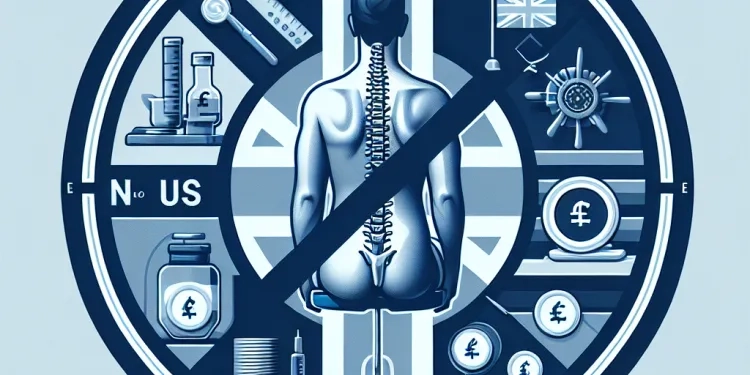
Are chiropractic treatments painful?
Relevance: 29%
-

Will I feel pain during the procedure?
Relevance: 29%
-

Stomach ache and abdominal pain
Relevance: 29%
-

How do chiropractors treat back pain?
Relevance: 28%
-
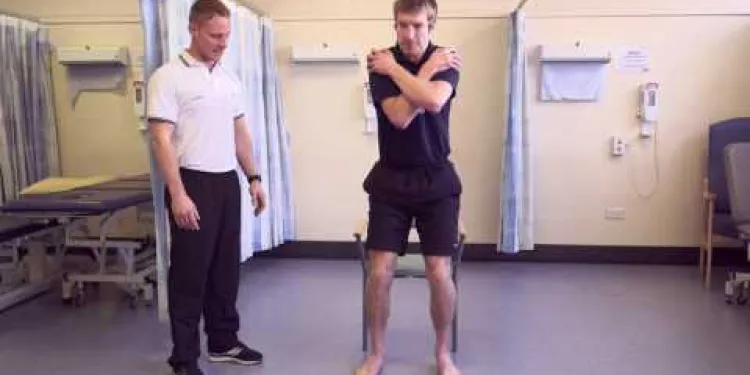
Exercises to help your lateral hip pain
Relevance: 28%
-
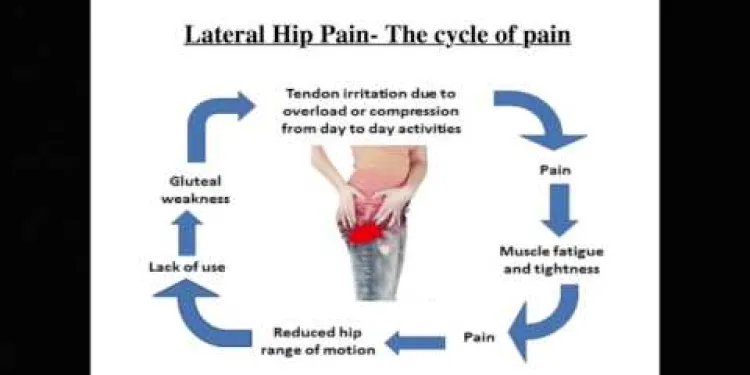
Advice - How to manage your lateral hip pain
Relevance: 28%
-

MSK Lower Back Pain information video
Relevance: 28%
-
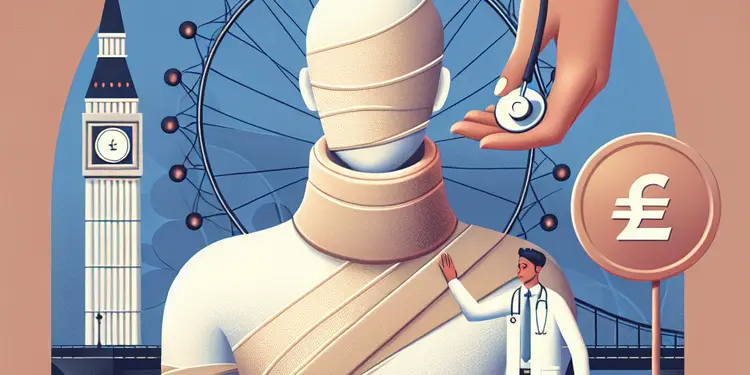
What is the role of pain management in treating whiplash?
Relevance: 28%
-

Useful information for patients with lower back pain
Relevance: 28%
-

Pelvic Girdle Pain Advice Class
Relevance: 27%
-

Is the womb lining test painful?
Relevance: 27%
-

Can I take Aspirin and Ibuprofen together?
Relevance: 27%
-
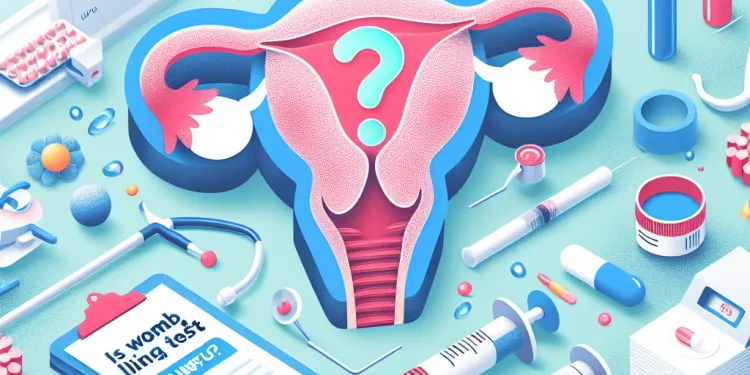
Is a womb lining test painful?
Relevance: 27%
Introduction to NSAIDs
Non-Steroidal Anti-Inflammatory Drugs (NSAIDs) are a class of medications used to relieve pain, reduce inflammation, and lower fever. Common examples include ibuprofen, aspirin, and naproxen, available over the counter in the UK. These drugs are widely used for conditions such as headaches, arthritis, and muscle strains.
The Mechanism of Action
NSAIDs work by inhibiting the activity of enzymes called cyclooxygenases (COX). These enzymes are crucial in the biochemical pathway that produces prostaglandins, which are compounds that mediate inflammation, pain, and fever. There are two main types of COX enzymes: COX-1 and COX-2. COX-1 helps maintain the normal lining of the stomach and supports kidney function, while COX-2 is primarily involved in inflammation and pain pathways.
By blocking the COX enzymes, NSAIDs reduce the production of prostaglandins. This leads to decreased inflammation and pain, as well as a reduction in fever. However, because NSAIDs often inhibit both COX-1 and COX-2 enzymes, they can also cause side effects like stomach irritation and increased risk of bleeding due to reduced protection of the stomach lining.
NSAIDs in Pain Management
NSAIDs are effective in treating mild to moderate pain, particularly when the pain is associated with inflammation. They are often used for conditions like arthritis, dental pain, and menstrual cramps. By lowering inflammation, NSAIDs help alleviate the pain associated with swelling and irritation of tissues.
In the UK, guidelines recommend using the lowest effective dose for the shortest possible duration to minimise side effects. For chronic conditions, patients might be advised to take NSAIDs on a regular basis, but medical guidance is essential to manage potential risks.
Potential Side Effects
While effective, NSAIDs can have side effects due to their action on COX-1 enzymes. Common side effects include gastrointestinal problems, such as nausea and stomach ulcers. Long-term use or high dosages can also increase the risk of cardiovascular issues, such as heart attacks and strokes.
Individuals with pre-existing conditions, like heart disease, high blood pressure, or a history of stomach ulcers, should consult with healthcare professionals before using NSAIDs. It is important to balance the benefits of pain and inflammation relief against the potential risks of side effects.
Conclusion
NSAIDs are a widely used and effective option for pain relief and inflammation reduction. Understanding how these drugs work helps individuals make informed choices about their use, especially regarding dosage and duration. Consulting with healthcare providers can ensure safe and effective pain management while minimising potential adverse effects.
Introduction to NSAIDs
NSAIDs are medicines that help with pain, swelling, and fever. Some common ones are ibuprofen, aspirin, and naproxen. You can buy them easily in the UK. People use them for things like headaches, arthritis, and sore muscles.
How NSAIDs Work
NSAIDs block some special proteins in your body known as COX enzymes. These proteins help make a substance called prostaglandins, which cause pain and swelling. There are two COX enzymes: COX-1 and COX-2. COX-1 helps protect your stomach, while COX-2 is involved in causing pain.
When NSAIDs block these enzymes, less prostaglandins are made. This means less pain and swelling. But, blocking COX-1 can irritate your stomach and make bleeding more likely.
Using NSAIDs for Pain
NSAIDs are good for small to medium pain, especially if it's from swelling. They help with things like arthritis, toothaches, and period pains. By reducing swelling, they help with pain too.
In the UK, people are told to use the smallest amount of NSAIDs that work and to not use them for too long. For ongoing pain, a doctor should help to make sure it's safe to use them regularly.
Possible Side Effects
Although NSAIDs work well, they can cause problems because they affect COX-1. Common problems include stomach pain and ulcers. Using them for a long time can also hurt your heart.
If you have heart problems, high blood pressure, or stomach issues, talk to a doctor before using NSAIDs. Always check the good things against any risks.
Conclusion
NSAIDs help a lot with pain and swelling. Knowing how they work helps you use them wisely. It's good to talk to a doctor about how much to take and how long to take them, to avoid side effects.
Frequently Asked Questions
What are NSAIDs?
NSAIDs, or nonsteroidal anti-inflammatory drugs, are medications that reduce inflammation, relieve pain, and lower fever.
How do NSAIDs reduce pain?
NSAIDs reduce pain by inhibiting the activity of cyclooxygenase (COX) enzymes, which are involved in the production of prostaglandins that cause inflammation and pain.
What are COX enzymes?
COX enzymes, or cyclooxygenase enzymes, are involved in the conversion of arachidonic acid to prostaglandins, which play a key role in inflammation and pain signaling.
What are prostaglandins?
Prostaglandins are lipid compounds that have hormone-like effects, such as promoting inflammation, pain, and fever, in the body.
What types of NSAIDs are commonly used?
Common NSAIDs include ibuprofen, naproxen, aspirin, and diclofenac.
Do NSAIDs treat all types of pain?
NSAIDs are effective for inflammatory pain, such as that associated with arthritis or an injury, but may not be as effective for certain types of pain like neuropathic pain.
What are common side effects of NSAIDs?
Common side effects include stomach upset, heartburn, ulcers, and an increased risk of bleeding.
Can NSAIDs be used long-term?
Long-term use of NSAIDs should be done under medical supervision due to risks like gastrointestinal bleeding, kidney damage, and cardiovascular issues.
How do NSAIDs affect the body’s natural healing process?
By reducing inflammation, NSAIDs may sometimes slow down the natural healing process or mask symptoms of underlying issues.
Can everyone use NSAIDs?
Not everyone should use NSAIDs. They may not be suitable for people with certain health conditions, like ulcers, kidney disease, or cardiovascular problems.
What should I do if I experience side effects from NSAIDs?
If you experience side effects, you should consult your healthcare provider to discuss alternative treatments or adjust your medication.
Are there any natural alternatives to NSAIDs?
Some natural alternatives include turmeric, ginger, and omega-3 fatty acids, which may have anti-inflammatory properties.
How should NSAIDs be taken to minimize side effects?
NSAIDs should be taken with food or milk to help minimize stomach issues, and you should follow the dosage prescribed by your healthcare provider.
What is the difference between NSAIDs and acetaminophen?
Unlike NSAIDs, acetaminophen does not have anti-inflammatory properties; it reduces pain and fever without reducing inflammation.
Why do NSAIDs lead to gastrointestinal issues?
NSAIDs can irritate the stomach lining and reduce the production of protective gastric mucus, which can lead to gastrointestinal issues.
Can NSAIDs affect blood pressure?
NSAIDs can increase blood pressure in some individuals, particularly with long-term use or in people with high blood pressure.
Is there a difference between over-the-counter and prescription NSAIDs?
Prescription-strength NSAIDs often have higher dosages and may be formulated differently than over-the-counter versions.
Can taking NSAIDs affect kidney function?
Yes, NSAIDs can reduce blood flow to the kidneys, potentially affecting kidney function, especially in people with pre-existing kidney issues.
What is COX-2 selective inhibition in NSAIDs?
COX-2 selective NSAIDs specifically inhibit the COX-2 enzyme, which is more associated with inflammation and pain, potentially resulting in fewer gastrointestinal side effects.
Are NSAIDs safe during pregnancy?
NSAIDs are generally not recommended during pregnancy, especially in the third trimester, due to potential risks to the fetus.
What are NSAIDs?
NSAIDs are medicines that help if you have pain or swelling. They are like strong pain relievers. They can help when you hurt yourself or if you have a headache.
Here are some tips to understand NSAIDs even better:
- Ask an adult to explain these medicines to you.
- Look for pictures of the medicine boxes online or in a book.
- Use large print books or tools if reading small words is hard.
NSAIDs are medicines that help make swelling go down. They also help if you hurt and have a fever.
How do NSAIDs help with pain?
Pain happens when our bodies get hurt.
NSAIDs are medicines that help stop pain.
They work by stopping special chemicals in the body. These chemicals can make us feel pain.
By stopping these chemicals, NSAIDs make the pain go away or feel less.
If you need help understanding, you can:
- Ask someone to explain it to you.
- Use pictures to help you learn.
- Watch a simple video about how medicines work.
NSAIDs help stop pain. They work by blocking COX enzymes. COX enzymes make things called prostaglandins. Prostaglandins can make you hurt and feel sore.
What are COX enzymes?
COX enzymes are special proteins in our body.
They help make chemicals that control pain and swelling.
Sometimes, if you get hurt or sick, COX enzymes can help you feel better.
To learn more, you can use pictures or videos. These can help you understand better.
COX enzymes are special helpers in your body. They help change something called arachidonic acid into a different thing called prostaglandins. Prostaglandins are important because they help your body feel pain and get swollen when you are hurt.
What are prostaglandins?
Prostaglandins are special chemicals in your body. They help with many body jobs, like healing and feeling pain.
When you are hurt, prostaglandins help your body fix itself. They can also make you feel pain, which tells you something is wrong.
Doctors sometimes give medicines that change how prostaglandins work to help you feel better.
If reading is hard, you can ask someone to read this to you. Using pictures or videos might also help you learn about prostaglandins.
Prostaglandins are fatty substances in the body. They act like hormones. They help with swelling, pain, and fever.
What are the common types of NSAIDs?
NSAIDs are a type of medicine that help with pain and swelling. Here are some common ones:
- Aspirin
- Ibuprofen (like Advil or Nurofen)
- Naproxen (like Aleve)
These medicines help when you have a headache, sore muscles, or a fever.
It can be helpful to use pictures and read with a friend if you need more support.
Some common pain medicines are ibuprofen, naproxen, aspirin, and diclofenac.
Do NSAIDs help with all kinds of pain?
NSAIDs are medicines that can help to stop pain.
They don’t work for every kind of pain.
It is good to ask a doctor or nurse what medicine is best for your pain.
If reading is hard, you can:
- Ask someone to read it to you.
- Use a ruler or your finger to follow the words.
- Use a computer or phone to read it out loud.
NSAIDs are medicines that help with pain from swelling, like if you hurt your knee or have sore joints. But they might not work well for some kinds of pain, like nerve pain.
Tools that might help: You can use apps or audio books to hear words if reading is hard. Ask someone to help explain words you don't know.
What problems can NSAIDs cause?
Some common side effects are: tummy ache, heartburn, sores, and more chance of bleeding.
Can you take NSAIDs for a long time?
It is important to talk to a doctor if you need to take pain medicine for a long time. These medicines can sometimes cause problems with your stomach, kidneys, or heart.
How do pain medicines change the body's healing?
Pain medicines, like ibuprofen, help with pain and swelling. But they can also slow down how fast cuts and bruises get better.
- Use these medicines for short times only if needed.
- Talk to a doctor if you have a hurt that won’t heal.
Tools that can help:
- Picture books about healing.
- Apps that show how the body fixes itself.
- Medicine timers to remind when to take a pill.
NSAIDs can help with swelling and pain. But sometimes, they can slow down healing or hide other problems.
Can everyone take NSAIDs?
Not everyone should take NSAIDs. It's important to check with a doctor first.
Some people might have allergies or health problems that make NSAIDs unsafe for them.
Here are some things you can do if it's hard to read:
- Ask someone to read it with you.
- Use apps that read out loud.
- Look for pictures or videos that explain more.
- Take your time and read little by little.
- Ask questions if you are not sure.
If you feel any pain or sickness, talk to a doctor right away.
Not everyone should use NSAIDs. Some people should not take them if they have health problems with their stomach, kidneys, or heart.
What if I feel unwell after taking NSAIDs?
NSAIDs are medicines like ibuprofen. They help with pain and swelling.
If you feel sick after taking them, tell a grown-up or visit a doctor.
Here are some helpful things you can do:
- Stop taking the medicine.
- Drink lots of water.
- Rest if you feel tired.
- Ask a doctor for help. They can give you advice.
If you feel unwell because of medicine, talk to your doctor. They can help you find different medicine or change the amount you take.
Can you use natural things instead of NSAIDs?
Some people can't use NSAIDs like ibuprofen because they have side effects.
You can try some natural things to help with pain:
- Ginger: Ginger can help when you have pain.
- Tumeric: Turmeric has something called curcumin that helps with swelling and pain.
- Willow Bark: This comes from a tree and can help with pain.
It's a good idea to talk to a doctor before trying these. They can help you find what works best.
You could also use things like:
- Heat or cold packs
- Listening to calming music
- Gentle exercises like stretching
Try using pictures or videos if that helps you learn better!
Some natural things that might help are turmeric, ginger, and omega-3. They can help reduce swelling or pain in your body.
How can you take NSAIDs safely?
NSAIDs are a type of medicine. They help with pain and swelling.
Here is how to take them safely:
- Always take NSAIDs with food. This protects your stomach.
- Do not take more than the doctor says.
- If they upset your stomach, tell an adult or doctor.
Tools and tips that can help:
- Use a pill organizer to remember your doses.
- Set reminders on your phone for taking your medicine.
You should take NSAIDs, like medicine for pain, with food or milk. This helps stop your tummy from hurting. Always take the amount your doctor says.
What is the difference between NSAIDs and acetaminophen?
NSAIDs and acetaminophen are medicines. They help when you have pain or fever.
NSAIDs are a type of medicine. They help with pain, swelling, and redness. They can help if you have a headache, toothache, or a cold. Some common NSAIDs are ibuprofen (like Advil) and aspirin.
Acetaminophen is a different type of medicine. It helps with pain and fever but not swelling. One common brand is Tylenol.
Remember: Always ask an adult or a doctor if you have questions about medicine.
Use a timer or an alarm to remember when to take your medicine.
Acetaminophen is a medicine that helps to lower pain and fever. But, unlike some other medicines called NSAIDs, it does not help with swelling.
Why do NSAIDs cause tummy problems?
NSAIDs are a type of medicine you take when you have pain or fever. People sometimes get tummy aches or problems after taking this medicine.
This happens because NSAIDs can hurt the safe lining of your belly. This lining helps protect your tummy from strong juices used to break down food.
When the lining is hurt, your tummy gets sore or damaged. If you feel bad after taking these medicines, tell a grown-up or a doctor.
Here are some things that can help:
- Take NSAIDs with food or milk.
- Ask a doctor about other medicines that are easier on the tummy.
- Tell someone if you feel sick after taking the medicine.
Drugs called NSAIDs can hurt the stomach. They can stop the stomach from making a special thick liquid that keeps it safe. This can cause tummy problems.
If you find this hard to read, you can ask someone for help or use a text-to-speech tool to listen to it instead.
Do NSAIDs change blood pressure?
NSAIDs are medicines people take for pain or swelling. Sometimes these medicines can make your blood pressure go up. If you take NSAIDs and have high blood pressure, talk to your doctor or nurse. They will help you stay healthy and can tell you what to do.
Support tools: You can use apps or gadgets to check your blood pressure at home. This helps you know if it changes.
Pain medicines called NSAIDs can make some people's blood pressure go up. This can happen if you take them for a long time or if you already have high blood pressure.
Are over-the-counter and prescription NSAIDs the same?
Prescription NSAIDs have more medicine in them compared to the ones you can buy in a store. They might also be made a bit differently.
Can pain medicine harm kidneys?
Sometimes, taking pain medicine, like NSAIDs, can hurt your kidneys. If you have kidney problems, ask a doctor before taking these medicines.
Here are some tips:
- Talk to a doctor or pharmacist if you are unsure.
- Read medicine labels carefully.
- Drink water when taking medicine.
Yes, some medicines like NSAIDs can slow down blood flow to the kidneys. This can make it harder for kidneys to work well, especially in people who already have kidney problems.
Here are some tips for understanding this better:
- Ask a doctor or pharmacist if the medicine is safe for your kidneys.
- Look out for changes in your body, like swelling or feeling tired, and tell your doctor.
- If you find it hard to read or understand, use a voice reader to help.
What does COX-2 selective inhibition in NSAIDs mean?
NSAIDs are medicines that help stop pain and swelling.
Some people say "N-S-A-I-Ds" like this: "N-said".
COX-2 is something in our bodies that can cause pain and swelling.
Some NSAIDs block only COX-2. This helps stop pain and swelling without upsetting your tummy.
Tools like picture charts can make this easier to understand.
Talking to a doctor or nurse can also help explain what NSAIDs do.
COX-2 selective NSAIDs are medicines. They block the COX-2 enzyme. This enzyme can cause pain and swelling. These medicines may help your stomach feel better because they might cause fewer tummy problems.
Can you take pain medicine while pregnant?
If you are going to have a baby, you might wonder if it is okay to take some types of pain medicine. Not all pain medicine is safe for pregnant people.
Always ask your doctor before taking any medicine. They can tell you what is safe for you and your baby.
You can use a picture chart or ask someone to help you remember this.
It is usually not a good idea to take a kind of medicine called NSAIDs when you are pregnant, especially in the last 3 months, because it might not be safe for the baby.
Useful Links
This website offers general information and is not a substitute for professional advice.
Always seek guidance from qualified professionals.
If you have any medical concerns or need urgent help, contact a healthcare professional or emergency services immediately.
Some of this content was generated with AI assistance. We’ve done our best to keep it accurate, helpful, and human-friendly.
- Ergsy carfully checks the information in the videos we provide here.
- Videos shown by Youtube after a video has completed, have NOT been reviewed by ERGSY.
- To view, click the arrow in centre of video.
- Most of the videos you find here will have subtitles and/or closed captions available.
- You may need to turn these on, and choose your preferred language.
- Go to the video you'd like to watch.
- If closed captions (CC) are available, settings will be visible on the bottom right of the video player.
- To turn on Captions, click settings .
- To turn off Captions, click settings again.
More Items From Ergsy search
-

How do NSAIDs work to reduce pain?
Relevance: 100%
-

Why might someone choose Paracetamol over NSAIDs?
Relevance: 60%
-

Does Paracetamol reduce inflammation?
Relevance: 47%
-

Can I use Ibuprofen for menstrual pain?
Relevance: 42%
-

How to deal with period pain | NHS
Relevance: 42%
-

Can Ibuprofen be used to reduce inflammation?
Relevance: 39%
-

How to deal with period pain | NHS
Relevance: 38%
-

Shoulder pain | NHS
Relevance: 38%
-

How to deal with period pain | NHS
Relevance: 38%
-

What is the difference between Aspirin, Paracetamol, and Ibuprofen?
Relevance: 35%
-

Is impetigo painful?
Relevance: 35%
-

Is a facelift painful?
Relevance: 34%
-

Is a mammogram painful?
Relevance: 34%
-

Foot Pain
Relevance: 34%
-

Greater trochanteric pain syndrome
Relevance: 34%
-

Period pain (dysmenorrhoea) - BSL
Relevance: 34%
-

How does aspirin work to reduce cancer risk?
Relevance: 33%
-

Treating breast pain | United Lincolnshire Hospitals NHS Trust
Relevance: 32%
-

Shoulder pain | NHS
Relevance: 32%
-

Heel pain | NHS
Relevance: 30%
-

Mechanical Lower Back Pain
Relevance: 30%
-

Shoulder subacromial shoulder pain
Relevance: 30%
-

Advice on neck pain and whiplash
Relevance: 30%
-

How can I manage pain after a C-section?
Relevance: 30%
-

Shoulder pain | NHS
Relevance: 29%
-

How to deal with period pain | NHS
Relevance: 29%
-

How to treat back pain | NHS
Relevance: 29%
-

Are chiropractic treatments painful?
Relevance: 29%
-

Will I feel pain during the procedure?
Relevance: 29%
-

Stomach ache and abdominal pain
Relevance: 29%
-

How do chiropractors treat back pain?
Relevance: 28%
-

Exercises to help your lateral hip pain
Relevance: 28%
-

Advice - How to manage your lateral hip pain
Relevance: 28%
-

MSK Lower Back Pain information video
Relevance: 28%
-

What is the role of pain management in treating whiplash?
Relevance: 28%
-

Useful information for patients with lower back pain
Relevance: 28%
-

Pelvic Girdle Pain Advice Class
Relevance: 27%
-

Is the womb lining test painful?
Relevance: 27%
-

Can I take Aspirin and Ibuprofen together?
Relevance: 27%
-

Is a womb lining test painful?
Relevance: 27%


